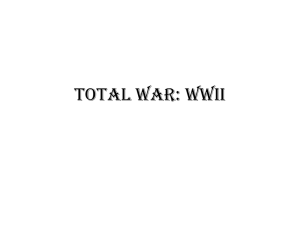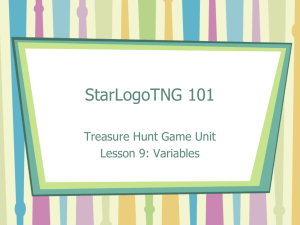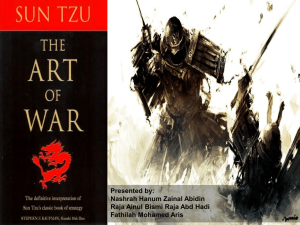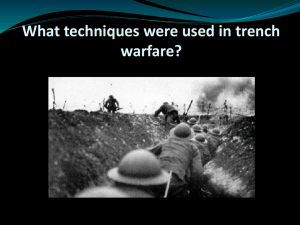The Three C`s of Writing
advertisement
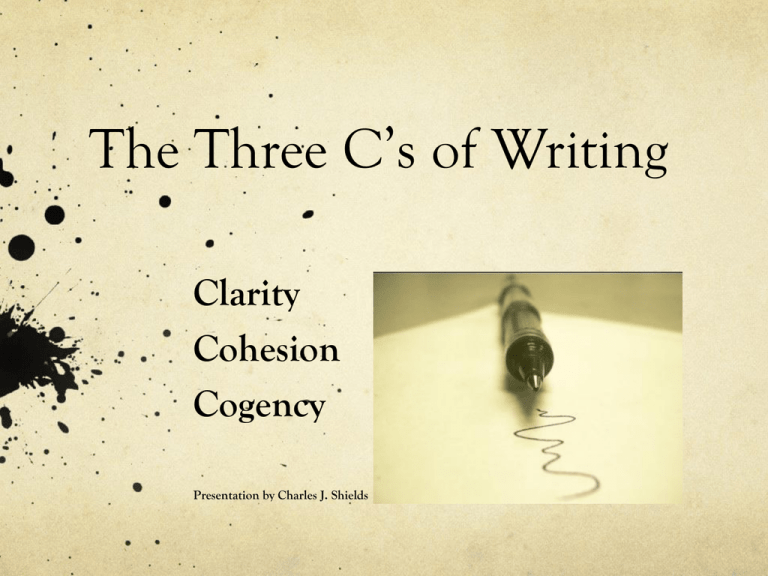
The Three C’s of Writing Clarity Cohesion Cogency Presentation by Charles J. Shields What’s the writing job you have to do? Create the next Great American novel? Submit a report that explains a procedure? “Nuclear Fission Made Easy” Argue your point of view? “Codes of sexual harassment imagine an entirely symmetrical universe, where people are never outrageous, rude, awkward, excessive or confused…. perhaps we should be worrying about different forms of hostility in our workplace….Maybe it’s better to live and work with colorful or inappropriate comments, with irreverence, wildness, incorrectness, ease.” — Katie Roiphe, “In Favor of Dirty Jokes and Risqué Remarks,” New York Times, Nov. 12, 2011 Whatever the task is, these three goals are common to all good writing: 1. It keeps the reader engaged; 2. It flows from point to point, step to step, scene to scene; 3. It provokes the reader into thinking. What does that mean: it provokes the reader into thinking? You want a reaction. “I see what she’s saying, but I don’t agree. I see her point, though.” “Very moving— sad, really.” “Huh! Never thought of that— interesting!” “Oh, I see! Makes sense, all right.” The worst thing a reader can say about your writing is: So What!? Who cares? ________ “Use the time of a total stranger in such a way that he or she will not feel the time was wasted.” — Kurt Vonnegut, Bagombo Snuff Box: Uncollected Short Fiction, 1999 When you write, you are creating a relationship with the reader. Let’s begin with the first C of writing: Clarity Clarity the quality of being clear; of being certain or definite; the quality of transparency or purity. Your first aim in any kind of writing is to be understood. What is the enemy of clarity? Here it is! Banish it— Evildoer! Confounder! Obfuscator! Complex Writing! Two symptoms of complex writing are: The dreadful, passive voice; And the clingy, dependent clause. The passive voice: “It was determined by the committee that the report was inconclusive.” “We were invited by the instructor to attend the review session.” “The religion of the pagans was able to survive the onslaught of new ideas until the old gods were finally displaced by Christianity.” The solution— put the actors at the front of the sentence: The committee determined that the report was inconclusive. The instructor invited us to attend the review session. The religion of the pagans survived the onslaught of new ideas until Christianity displaced the old gods. The clingy, dependent clause is a result of trying to do too much: “It is one of the many ironies of Darwin’s career that what many esteem as the centerpiece of his voluminous scholarship— On the Origin of the Species— he wrote in thirteen months, planning it only as an introduction to some grander, future exposition.” — Kenneth Korey, The Essential Darwin (1984) This way of writing makes us wait. We have to hang on to a dependent clause until we get to the point! Revised: Ironically, Darwin wrote The Origin of the Species, the centerpiece of his voluminous scholarship, in only thirteen months.[break] He intended it to be the introduction of some grander, future work. Another way of making us wait is tacking on clingy, dependent clauses. “In contrast to his father, who was conservative, retiring, and extremely modest and unassuming, Albert was extroverted, flamboyant, sociable, and a big spender, who always lived on a very lavish scale in various large houses with lots of servants, horses and carriages and then the earliest and finest motor cars, having at one point an English butler and a footman. He entertained his friends without thought of cost: the choicest viands, rare wines, flowers, the whitest linens, and choicest porcelain chinaware, acquiring the reputation of a millionaire who counted the cost of nothing.” — from a private family history Revised: Albert was extroverted, flamboyant, sociable, and a big spender,[inverted the order] in contrast to his father, who was conservative, retiring, and extremely modest and unassuming. [break] He always lived on a very lavish scale in various large houses with lots of servants, horses and carriages and then the earliest and finest motor cars. [break] At one point, he had an English butler and a footman. He entertained his friends without thought of cost: the choicest viands, rare wines, flowers, the whitest linens and choicest porcelain chinaware. [break] He soon acquired the reputation of a millionaire who counted the cost of nothing. A tip: Read your writing aloud. If you have to take a breath before finishing a sentence, then the sentence is too long. “Good writing sounds like good conversation.” — Virginia Woolf Our second C of good writing is: Coherence Coherence The quality of being united, forming a whole The enemy of coherence is: Lack of Structure All formal, well-executed writing has an identifiable structure: Novels have chapters Chapters have four to six scenes Plays have three acts Essays and speeches have a beginning, middle, and end Processes are explained step-by-step Arguments have a series of supporting points Newspaper articles go from general to specific Experiments are shown as cause and effect Technical manuals go from whole-to-parts, or parts-towhole The key thing is to decide on an identifiable structure. It will guide your writing— it’s the blueprint. Thesis/supporting points/ summary or conclusion First, second, third Introduction/development/end Big/smaller/smallest Problem/analysis/answer Example from the essay “New Age for Navies” in The Untold Civil War Watch how he goes from a broad idea, to specifics, to a broad conclusion about what happened, and what it meant. First sentence, first paragraph: “The first ironclads to wage war were designed and constructed for the Union in late 1861 by naval engineer James B. Eads of St. Louis.” (general) Topics sentences of paragraphs that follow in order: “The first battles between ironclads occurred in March 1862 in Hampton Roads, were the James River enters the Atlantic.” (battles— more specific) “The opposing ironclads that dueled there bore little resemblance to anything ever seen afloat.” (the ships themselves— more specific) “On March 9, the two bizarre ironclads met in Hampton Roads for their historic duel.” (more specific— the day of the first fight) Final paragraph, topic sentence: “The battles in Hampton Roads were heralded as the end of wooden ships and the dawn of the iron age in naval combat.” (broad again— a summary— looking ahead to the future) A Tip: If your ideas and points are logical, then transitions should come smoothly, sensibly: Addition: also, again, as well as, besides, coupled with, furthermore Consequence: accordingly, as a result, consequently, for this reason Direction: here, there, over there, beyond, nearly Illustration: for example, for instance, for one thing, as an illustration Summarizing: after all, all in all, briefly, by and large, in any case, in any event Our third and final C of good writing is: Cogency Cogency Being (of an argument or case) clear, logical, and convincing. The enemy of cogency is: Bloodless Writing! Here are the symptoms: Anemic, ordinary verbs Weak, apologetic, handwringing phrases Anemic verbs tend to be passive: “I was going to explain that, in my opinion, there are three reasons for the slump in the housing market. This first one is a problem with consumer confidence. The second one is the stock market. The third is joblessness.” Put energy into your writing. Use verbs and other parts of speech that suggest action. “I will argue… the housing market collapse causes… consumer confidence suffers…the sudden upswings and downturns of the stock market… the spread of joblessness that casts a chill on real estate sales.” Consider energy in this passage: With her hands clasped behind her back, the only sign of her former life as a farmworker and washwoman was the stumpy shape of her forearms, their muscles enlarged from years of twisting and squeezing soap through waterlogged sheets and tablecloths. But of course it was her hair that she wished to emphasize. Madam Walker had pinned her now healthy tresses into a carefully coifed crown, styled so that it gracefully swooped away from her face. — A’Lelia Bundles, On Her Own Ground: The Life and Times of Madam C.J. Walker (2001) And never, never be humble or apologetic! Do not say “In my opinion… I think…from my point of view….it seems to me.” Don’t communicate doubt— be bold! Government is not the enemy. Not always. Don’t believe that right-wing malarkey. In fact, for millions of Americans down on their luck and at the end of their rope, they can quickly find that government is their last friend left. Governmental assistance can prevent the certainty of a hungry night and a homeless tomorrow. It can mean the difference between the comfort of stability and the ravages of poverty….The lack of empathy for the poor and suffering on the part of the right is nothing short of breathtaking. — Charles M. Blow, “Friends with Benefits,” New York Times, Nov. 12, 2011 Government is not the enemy.[declarative sentence] Not always. [declarative] Don’t believe that right-wing malarkey. [imperative— clearly said!] In fact, for millions of Americans down on their luck and at the end of their rope, they can quickly find that government is their last friend left. Governmental assistance can prevent the certainty of a hungry night and a homeless tomorrow.[strong, parallel, alliterative] It can mean the difference between the comfort of stability and the ravages of poverty….[ “comfort” versus “ravages”— good contrast] The lack of empathy for the poor and suffering on the part of the right is nothing short of breathtaking. [not “wrong,” not “foolish,” but breathtaking.] By being direct and plainspoken, you make your meaning clear.
